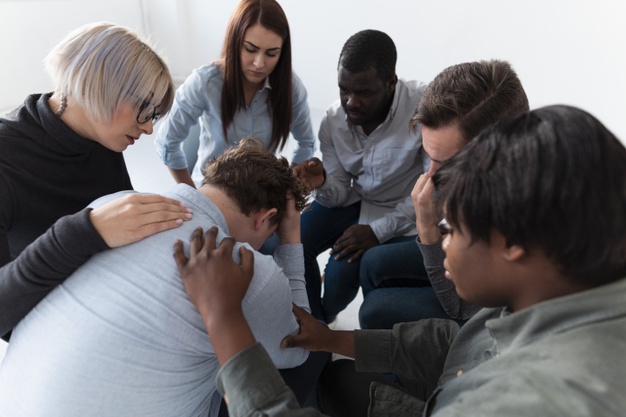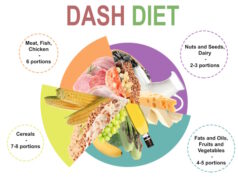
When it comes to addiction recovery, the odds are stacked up against optimum recovery, just like other chronic illnesses.
With about 8 million Americans suffering from mental and substance use disorder and co-occurring disorders, addiction recovery’s gravity is essential to curb the recurring statistics.
In South Florida, the number of addicts suffering from excessive use of marijuana and methamphetamine is alarming. Alcohol addiction is also prevalent in many Florida states, and opioid use constitutes of several drug-related overdoses.
Drug abuse in Florida is an issue for concern, with marijuana use leading at the top of substance addiction. This high intake of opiates in the state has seen the rise in drug peddling and the birth of various strains of different drugs evolving with modern times.
When conducted in a professional setting, the process of addiction recovery is manageable and safe, depending on the history of the drug and prevalent use. Treatment centers advise on the medication used to start as a precursor to treatment before embarking on other behavioral or holistic therapies.
The purpose of the medication process is to propel the individual towards the detoxification process, which aids in the rampant withdrawal effects that drugs and substances may cause. When administered by professionals, withdrawal symptoms can be managed and reduced to facilitate a smooth transition.
In addiction recovery, individuals should embark on strict measures to curb any relapses:
- Family
A recovering addict requires a rigid family structure, dedicated to the wellbeing and health of the individual. For instance, when married to an addict, the sober partner always tries to defend the addicted partner by taking up most of the responsibilities to shoulder the family against the addicted partner. This can cause detrimental effects in a family structure, as it upsets the married partner’s fiscal obligations. As a result, one partner tends to feed off the other by being unable to cater to their responsibilities.
Therefore, the affected partner neglects some duties leading to an unstable relationship, consequently deteriorating the relationship. As a result, the sober partner is left responsible for handling family issues, hating the addicted partner. This can become too hazardous to the sober partner, making them feel resentment towards the sober partner by taking care of the partner and feeding their addictions, thereby harboring feelings of resentment and neglect.
Addiction recovery within married couples may also lead to co-dependency whereby a partner puts on the needs of the addicted partner ahead of their own, thus neglecting their wants and conditions and the household’s responsibilities. The co-dependency factor can lead the spouse to become too invested to the point of destruction, and against their wellbeing. Typically, this aspect deters the spouse in finding a viable solution for the addiction problem and propels them to become too invested in the addict’s issues to care about their problems. Most families who experience co-dependence end up making excuses for the addict to make them seem responsible to society’s face, making their addiction seem like a fallacy. Addiction recovery tackles this factor by holding spouses and direct family members accountable for the addict’s relapse.
Most addicts end up leaving their children with their parents or grandparents, who are forced to pick up the slack, thereby putting a strain in their relationship and increasing substance use. Therefore, family structure is fundamental in ensuring the addict is in safe and capable hands when recovering.
- Societal structure
When it comes to society, recovering individuals should strive to ensure they do not go back to old habits by changing their daily patterns. For instance, refraining from different social groups and settings which would have otherwise triggered old habits is critical in ensuring a sober practice is maintained.
All in all, recovery addicts from rehabilitation centers should not entirely stop their regular scheduled visits to the centers. This helps in gradual change as they transition to the outside world. There are customized living plans available for recovering addicts who are straight from treatment centers, including sober living houses where recovering individuals have a structured schedule to assist them transition into society without risking relapse. Treatment facilities also offer patients support in therapy, medication, and evaluation by scheduling monitored follow-up visits.
In rehabilitation and treatment programs, individual counseling offers patients a platform to better understand the cause of their addiction and develop mitigating factors to curb risks of relapse. Through one on one interaction, addicts are faced with the realization of how detrimental their addiction is to their life. Group therapies also assist patients in finding ways to maintain a sober life outside of the treatment program.
Counselors and physicians also customize treatment plans depending on each individual to enable a fast recovery process by considering their drug history, family background, and the different triggers during treatment. Treatment centers such as the Substance Abuse and Mental Health (SAMH) in Florida offer behavioral treatment programs in addiction recovery.
Florida also offers funded treatment programs at no to little cost through the Temporary Assistance for Needy Families Substance Abuse and Mental Health program. The presence of the Florida Assertive Community Treatment centers also offers clinical services ranging from addiction treatment to recovery assistance to affected individuals.












